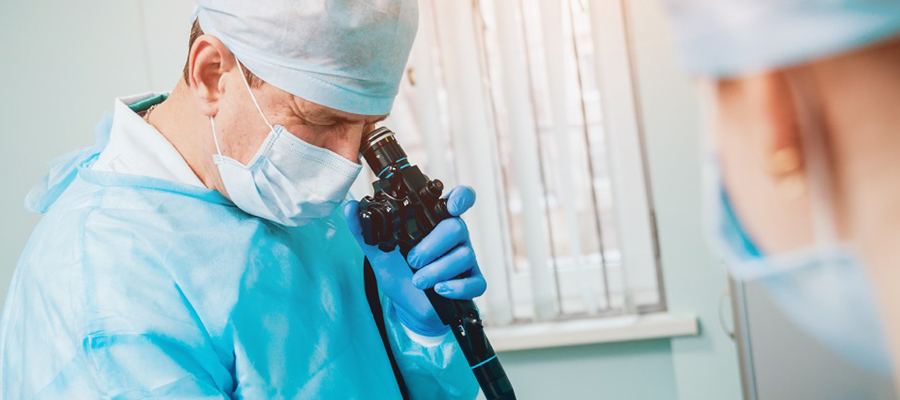
Estimated reading time: 3 minutes and 41 seconds
Colonoscopy & Gastroscopy
Comprehensive Colonoscopy & Gastroscopy Services at Aktif International Hospitals
Colonoscopy and gastroscopy are diagnostic procedures used to examine the digestive tract for abnormalities, such as polyps, inflammation, or tumors. At Aktif International Hospitals, we offer comprehensive colonoscopy and gastroscopy services performed by experienced gastroenterologists using state-of-the-art equipment. Our goal is to provide accurate diagnosis, early detection of gastrointestinal conditions, and personalized treatment plans to promote digestive health and well-being.
Frequently Asked Questions
What are colonoscopy and gastroscopy, and why are they performed?
- Colonoscopy: A colonoscopy is a procedure used to examine the lining of the colon (large intestine) and rectum using a flexible, lighted tube with a camera (colonoscope) inserted through the anus. Colonoscopy is performed to screen for colorectal cancer, detect and remove precancerous polyps, diagnose gastrointestinal conditions such as inflammatory bowel disease (IBD) or diverticulosis, and evaluate symptoms such as abdominal pain, rectal bleeding, or changes in bowel habits.
- Gastroscopy: A gastroscopy, also known as an upper endoscopy, is a procedure used to visualize the esophagus, stomach, and upper small intestine (duodenum) using a flexible, lighted tube with a camera (gastroscope) inserted through the mouth. Gastroscopy is performed to diagnose and treat conditions such as gastroesophageal reflux disease (GERD), peptic ulcers, gastritis, or Barrett’s esophagus, and to evaluate symptoms such as difficulty swallowing, heartburn, or abdominal pain.
Who is a good candidate for colonoscopy and gastroscopy?
Good candidates for colonoscopy and gastroscopy may include individuals who:
- Are at average or increased risk for colorectal cancer based on age, family history, or personal medical history
- Experience symptoms such as rectal bleeding, abdominal pain, changes in bowel habits, or difficulty swallowing
- Require surveillance or follow-up testing for known gastrointestinal conditions such as inflammatory bowel disease or Barrett’s esophagus
- Have abnormal findings on previous imaging studies or screening tests that require further evaluation
A gastroenterologist will determine if colonoscopy and gastroscopy are appropriate based on the patient’s medical history, symptoms, and diagnostic needs.
What should patients expect during colonoscopy and gastroscopy procedures?
During colonoscopy and gastroscopy procedures, patients can expect:
- Preparation: Patients will be instructed to follow a specific diet and bowel preparation regimen before the procedure to cleanse the colon or stomach and ensure optimal visualization of the digestive tract.
- Sedation: Most colonoscopy and gastroscopy procedures are performed under sedation to ensure patient comfort and relaxation during the examination. Sedation medications are administered intravenously by a trained anesthesiologist or nurse anesthetist.
- Procedure: The gastroenterologist will insert the colonoscope or gastroscope into the anus or mouth and advance it through the digestive tract while visualizing the lining of the colon or stomach on a monitor. Biopsies or therapeutic interventions such as polyp removal may be performed during the procedure if necessary.
- Recovery: After the procedure, patients will be monitored in a recovery area until the effects of sedation wear off and vital signs are stable. Most patients can resume normal activities within a few hours after the procedure.
What are the benefits of colonoscopy and gastroscopy procedures?
The benefits of colonoscopy and gastroscopy procedures include:
- Early detection and diagnosis of gastrointestinal conditions such as colorectal cancer, inflammatory bowel disease, or peptic ulcers
- Removal of precancerous polyps during colonoscopy to prevent the development of colorectal cancer
- Evaluation and treatment of symptoms such as abdominal pain, rectal bleeding, or difficulty swallowing
- Surveillance and follow-up testing for individuals at increased risk for gastrointestinal conditions or complications
Colonoscopy and gastroscopy procedures are valuable diagnostic tools for evaluating digestive health and identifying abnormalities that may require further evaluation or treatment.
Trust Aktif International Hospitals for Expert Colonoscopy & Gastroscopy Services
At Aktif International Hospitals, we understand the importance of early detection and accurate diagnosis in gastrointestinal health and offer comprehensive colonoscopy and gastroscopy services to meet the needs of our patients. Our team of experienced gastroenterologists, nurses, and support staff is dedicated to providing personalized care, advanced diagnostic techniques, and compassionate support throughout the colonoscopy and gastroscopy process. Schedule a consultation with us today and experience the difference with Aktif International Hospitals.
Author: Muharrem Kuzkaya


 TR
TR